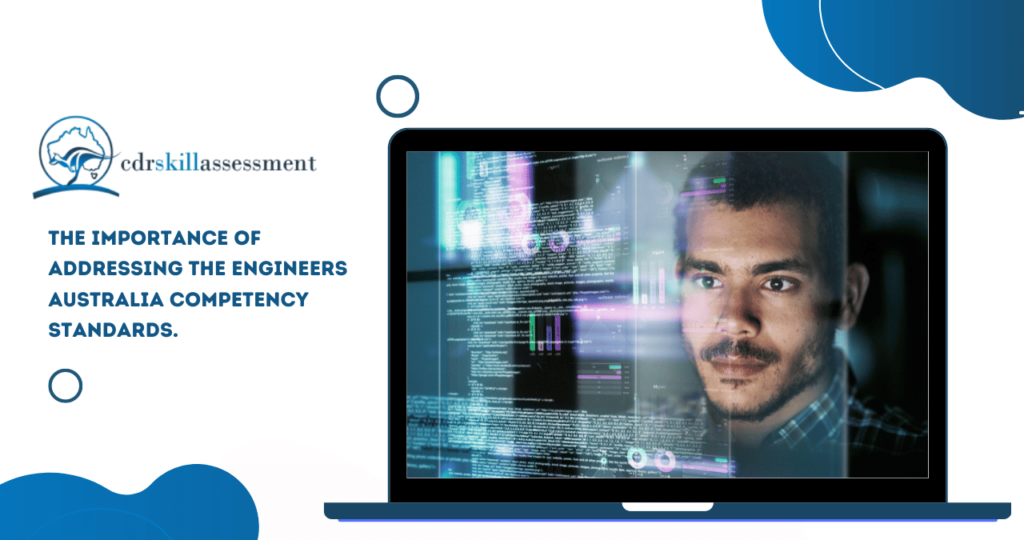Aspiring engineers who are non-native English speakers face a unique challenge when applying for a Skilled Migration visa in Australia. In order to secure a visa, they must meet the Engineers Australia (EA) competency standards, which require a Competency Demonstration Report (CDR) that showcases their skills, education, and work experience. Know more about the Key Elements of CDR report writing for your report to be approved by Engineers Australia. However, these standards can be particularly daunting for non-English speakers who may not be confident in their language skills. In this article, we will explore why it is important for non-English-speaking engineers to address the EA standards in their CDRs.
The importance of addressing EA competency standards
The EA standards ensure that engineers who want to work in Australia meet certain minimum requirements in terms of their education, skills, and work experience. The CDR is a critical part of this process as it allows the applicant to demonstrate their competence in these areas. For non-English speaking engineers, addressing EA standards can be particularly challenging, as it requires not only demonstrating their technical knowledge but also their language proficiency. However, by addressing these standards, non-English speaking engineers can demonstrate to EA that they are capable of working effectively in English-speaking environments and are meeting the requirements of the Australian engineering industry.
Understanding the EA competency standards
Before addressing the EA competency, it is important to understand what they are and what they require. The standards are divided into three categories: knowledge and skill base, engineering application ability, and professional and personal attributes. Non-English speaking engineers need to demonstrate competence in each of these categories in their CDRs. This means providing evidence of their technical knowledge, their ability to apply that knowledge in real-world situations, and their professional and personal attributes, such as communication skills, teamwork, and leadership.
The challenges faced by non-English speaking engineers
Non-English speaking engineers face a unique set of challenges when it comes to addressing the EA. The most obvious challenge is language proficiency. For many non-English speakers, English is not their first language, which means they may struggle to express themselves effectively in written and spoken English. This can make it difficult for them to demonstrate their technical knowledge and communicate their ideas effectively. In addition, non-English speakers may struggle with understanding Australian engineering terminology, which can further complicate their efforts to address the competency.
Strategies for addressing the EA competency standards
Despite the challenges faced by non-English speaking engineers, there are several strategies they can use to address the EA competency effectively. The first strategy is to focus on developing their language proficiency. This may involve taking English language courses, practicing their writing and speaking skills, and seeking feedback from English-speaking colleagues or mentors. Another strategy is to seek assistance from a professional CDR writing service, which can provide guidance and support in addressing the competency standards. A third strategy is to develop a clear understanding of the competency standards and the evidence required to demonstrate competence in each area.
Conclusion
Addressing the EA competency standards is a critical step for non-English-speaking engineers who want to work in Australia. While it can be challenging, it is important to remember that the standards are designe to ensure that all engineers working in Australia meet certain minimum requirements in terms of their education, skills, and work experience. By addressing these standards, non-English speaking engineers can demonstrate to EA that they are commit to meeting these requirements and are capable of working effectively in English-speaking environments. With the right strategies and support, non-English speaking engineers can successfully address the EA competency standards and secure a Skilled Migration visa in Australia.
FAQ
- What are the EA standards?
- The EA competency standards are a set of minimum requirements for engineers who want to work in Australia. These requirements cover a range of areas, including technical knowledge, engineering application ability, and professional and personal attributes.
- Why are the EA competency important for non-English speaking engineers?
- The standards are particularly important for non-English speaking engineers because they need to demonstrate their language proficiency in addition to their technical skills. Addressing the competency standards effectively can help non-English speaking engineers demonstrate that they are capable of working effectively in English-speaking environments.
- What are some of the challenges by non-English speaking engineers when addressing the EA competency standards?
- Non-English speaking engineers may struggle with language proficiency, understanding Australian engineering terminology, and effectively communicating their technical knowledge.
- What strategies can non-English speaking engineers use to address the EA standards?
- Non-English speaking engineers can focus on developing their language proficiency, seek assistance from professional CDR writing services, and develop a clear understanding of the competency standards and the evidence required to demonstrate competence in each area.
- How can addressing the EA competency standards help non-English speaking engineers secure a Skilled Migration visa in Australia?
- Addressing the EA competency standards effectively can demonstrate to EA that non-English speaking engineers are committed to meeting the minimum requirements for working in Australia and are capable of working effectively in English-speaking environments. This can increase their chances of securing a Skilled Migration visa in Australia.

